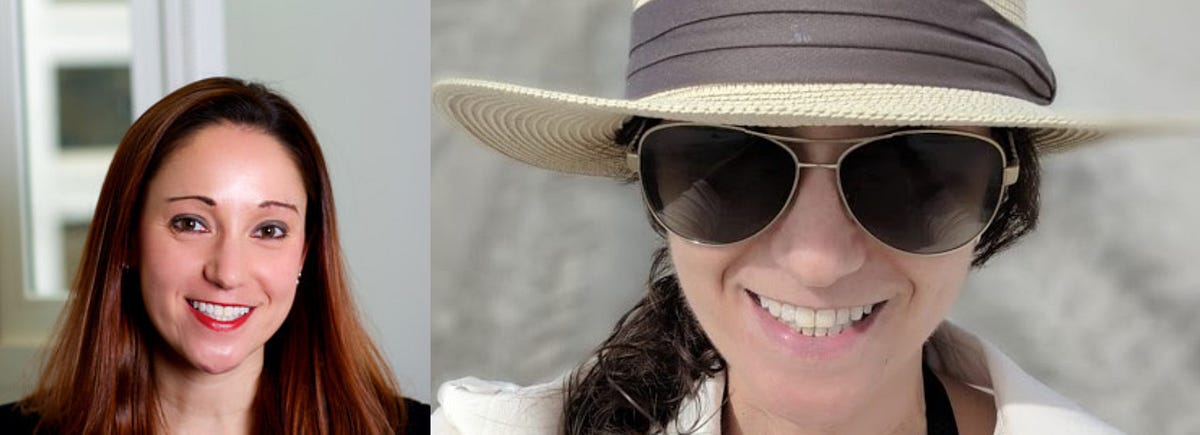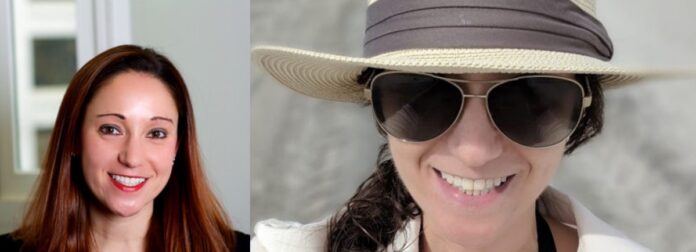Whitney Mayer of the Hershey Company: “If you aren’t messing up at least a little bit every six months or so, then you aren’t trying hard enough or pushing yourself out of your comfort zone”

…If you aren’t messing up at least a little bit every six months or so, then you aren’t trying hard enough or pushing yourself out of your comfort zone. We all need to get comfortable taking a risk and making mistakes. I think I have benefitted from working at smaller organizations and start ups where I was forced to make decisions I really didn’t feel qualified to make. I learned to ask for help, gather as much information as I could, and ultimately make the best decision I could with the information I had. Some of those worked out and many didn’t.
As a part of my series about strong female leaders, I had the pleasure of interviewing Whitney Mayer. Whitney has spent over a decade working at the intersection of the private, public, and social sectors, is passionate about market-based approaches to scale development and decrease poverty. She currently manages the Hershey Company’s Human Rights program where she works on programs to improve respect for the rights of vulnerable people across Hershey’s value chain. In addition to her work on human rights, Whitney also supports purpose-driven brand marketing efforts that advance the company’s broader sustainability goals. Prior to joining the Hershey Company, Whitney worked for Arabella Advisors, a philanthropy and impact investing consulting firm, where she managed strategy and evaluation projects focused on international development, human rights, and conservation. She has previously worked for the US Department of State in Paraguay and also managed programs for the nonprofit Global Fairness Initiative. Whitney has lived and worked in Latin America, Africa, South Asia, and China. She holds an MS in Foreign Service from Georgetown University and BS in industrial and labor relations from Cornell University. Whitney currently lives in Hershey, PA with her husband, Don, daughters, Avery & Sydney, and dog Kilimonster.
Thank you so much for doing this with us Whitney! Can you tell us a story about what brought you to this specific career path?
I actually distinctly remember the first time I heard the word sweatshop on an evening news broadcast in the ’90s. I had a fight with my parents about wanting this black fleece jacket that all my classmates had and suddenly found myself wondering where it had been made. It was an abrupt introduction to the concept that the products and services I buy are inherently connected to the livelihoods and well-being of millions of people around the world. I started asking questions and essentially haven’t stopped.
Can you share a story about the funniest mistake you made when you were first starting? Can you tell us what lesson you learned from that?
I was working for a nonprofit organization called the Global Fairness Initiative — they are fantastic go check them out — and our founder who was quite well known in this space and in D.C., asked me to reach out to a number of people in her Rolodex about an event we were having. I misunderstood which set of numbers she had pointed to and ended up calling someone on her “Do Not Call” list — it was Madeleine Albright’s personal cell phone. It was the middle of the night wherever she was at the time, and I woke her up. I was mortified and convinced I was going to be fired. While funny now, at the time I felt like I had made this enormous mistake and potentially damaged an important relationship of someone more senior. It a) made me realize the sun does come up the next day and not to fear messing up and b) to have a sense of humor at work.
What do you think makes your company stand out? Can you share a story?
Hershey’s iconic brands really make us stand out as a company. Whenever I am at a conference or event and share what company I work for, people immediately begin to smile and share a story about making S’mores or eating a Hershey’s bar. That always makes me feel good. Of course given my work I am even more proud about the way we make our products and our 125-year history of doing well by doing good that started with our founder Milton Hershey. When we developed our global sustainability strategy, The Shared Goodness Promise, our team actually dug up old quotes from Milton talking about the environment, his community efforts and responsible business practices. It’s pretty inspiring to build a modern sustainability platform that is rooted in something so authentic.
Are you working on any exciting new projects now? How do you think that will help people?
Right now, I am working on building a comprehensive human rights program for Hershey. We have some great efforts underway already in certain areas like cocoa and this new initiative will allow us to more formally integrate human rights due diligence into our business operations. We also are looking at some exciting new partnerships in this space that we hope will come to fruition over the next year or so. Hershey has always been a company focused on doing the right thing, and I think it’s exciting to be building a program that takes into account the human rights of all individuals throughout our value chain.
What advice would you give to other female leaders to help their team to thrive?
Remember that teams are made up of individuals who each bring their own personal and professional experiences to the table. While building momentum around a common goal is critical, it’s also important to spend some time getting to know people as individuals first so you can motivate and manage differently if needed. Embracing the diversity and differences in perspectives and experiences among team members is really where the power of great ideas, successful work and an understanding of the people you impact originates.

What advice would you give to other female leaders about the best way to manage a large team?
Throughout my career I have managed a number of large teams — often virtually and many internationally. I like to spend a lot of time providing people with background and context so they can understand how their work fits into the bigger picture and be excited about it. I think it’s critical for people to understand the system in which their work fits. Furthermore, taking deliberate breaks for group brainstorming and ideation sessions have proven helpful. Even if things seem to be going fine, you never know what new ideas might pop up by getting folks together for some big picture thinking. You can’t do that effectively, though, if you didn’t set context up front.
None of us are able to achieve success without some help along the way. Is there a particular person who you are grateful toward who helped get you to where you are? Can you share a story about that?
There are so many people who have helped me along the way, but one person who stands out is Rajasvini (Vini) Bhansali, the former Executive Director of Thousand Currents, an incredible organization working with grassroots producer groups. I met Vini more than a decade ago and her passion for social justice, along with the work of the entire Thousand Currents team, has been inspiring and an important reminder that the best ideas come from directly from the communities and individuals impacted by whatever social or environmental issue we are working on. Vini has pushed me to think about my own privilege and background while at the same time being a fierce supporter of my choice to be a force for good within corporate America. I think that’s pretty special.
How have you used your success to bring goodness to the world?
I am most proud of our recent work to launch Hershey’s first ever global human rights policy. It’s been incredibly fulfilling to articulate publicly our beliefs and values in this space as a company. And creating this policy is only the beginning. We are now in the thick of the really hard work to bring this policy to life with meaningful programs and initiatives that will truly have an impact on people’s lives that we touch through our business operations. When we see how we can make life better for people, that is bringing goodness to the world.
What are your “5 Leadership Lessons I Learned From My Experience” and why.
I will give just one which is — if you aren’t messing up at least a little bit every six months or so, then you aren’t trying hard enough or pushing yourself out of your comfort zone. We all need to get comfortable taking a risk and making mistakes. I think I have benefitted from working at smaller organizations and start ups where I was forced to make decisions I really didn’t feel qualified to make. I learned to ask for help, gather as much information as I could, and ultimately make the best decision I could with the information I had. Some of those worked out and many didn’t.

You are a person of great influence. If you could inspire a movement that would bring the most amount of good to the most amount of people, what would that be? You never know what your idea can trigger. 🙂
It really bothers me that leading a healthy lifestyle is prohibitively expensive these days. Whether it be food desserts, the fact that yoga studios are always in premium zip codes, or the high cost to entry of competitive sports — leading a healthy lifestyle has become an equality issue. I think a lot is happening on these issues but not necessarily in a coordinated way when it comes to city planning. I’m no expert but just something I am personally passionate about that comes to mind.
Can you please give us your favorite “Life Lesson Quote”? Can you share how that was relevant to you in your life?
I can’t recall exactly where I first heard it but a senior person at Danone once quoted “every time you eat and drink you make a choice about the type of world you want to live in.” Working in sustainability and social impact at a major food company, this really resonated with me and hits home the role that each and every one of us as consumers has to play in helping make the world a bit better.
Some of the biggest names in Business, VC funding, Sports, and Entertainment read this column. Is there a person in the world, or in the US with whom you would love to have a private breakfast or lunch with, and why? He or she might just see this if we tag them.
I’m a runner and triathlete, so I would have to say Meb Keflezighi. I think his personal story is incredible and he has helped inspire a growing distance running movement here in the United States. Running for me has always been about mental health and physical health and so I would love to get his viewpoint on how we can continue to get more people involved.


